Submitted by WA Contents
Acclaimed Canadian landscape architect Claude Cormier dies aged 63
Canada Architecture News - Sep 20, 2023 - 13:28 3432 views
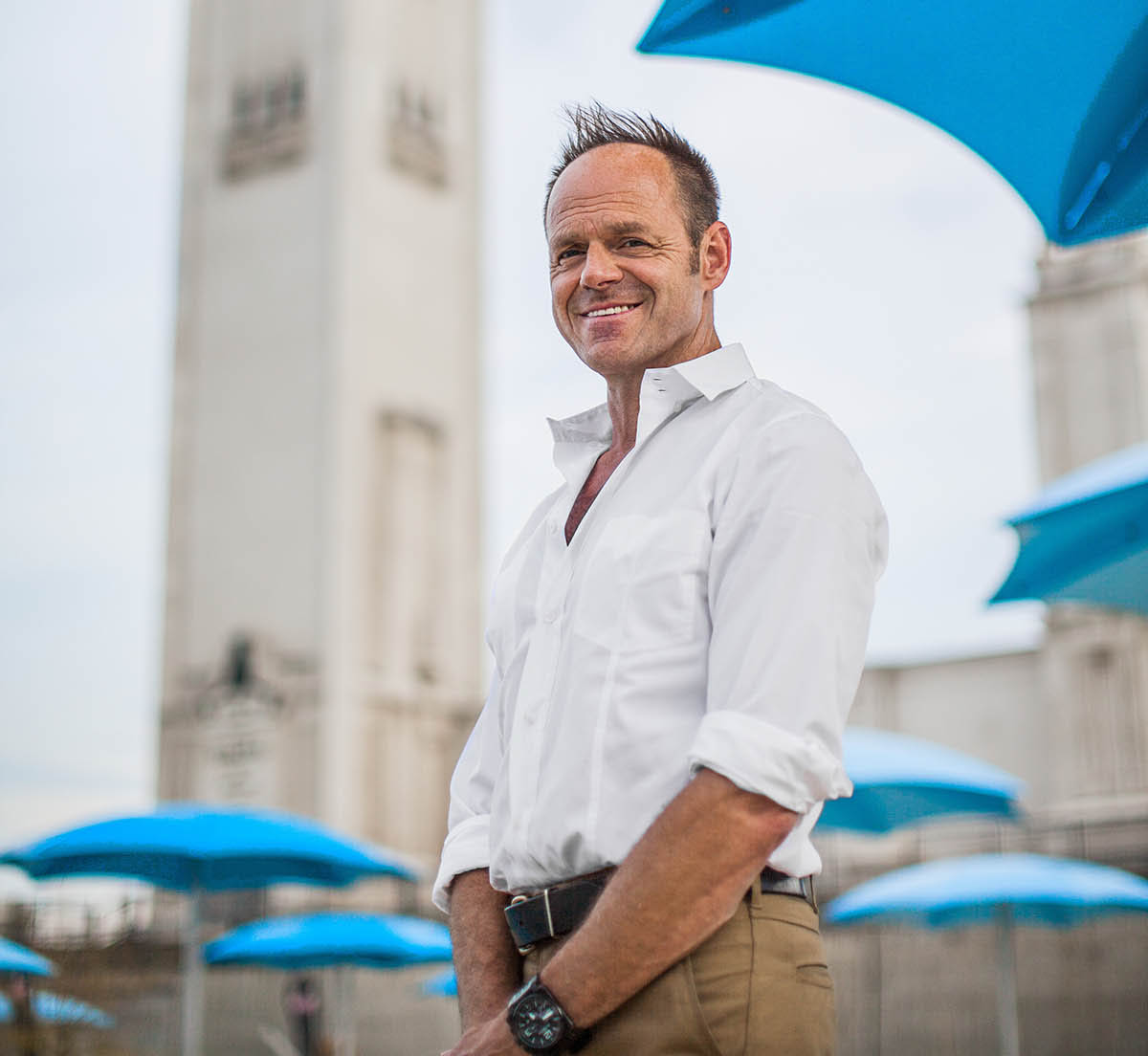
Acclaimed Canadian landscape architect Claude Cormier, who was the creative force behind of some of Canada’s most beloved, joyous, and critically acclaimed public spaces, has died at his Montreal home on September 15th. He was at the age of 63.
Cormier’s joyful and subversive designs blended conceptual clarity with a studied instinct for making enduring places.
Cormier was the founder of CCxA, a Montreal-based firm founded by Claude Cormier in 1995. In 2011, the firm became Claude Cormier et Associés, then CCxA in 2022.
His ability was entanched on public spaces with broad public appeal stemmed from multiple qualities.
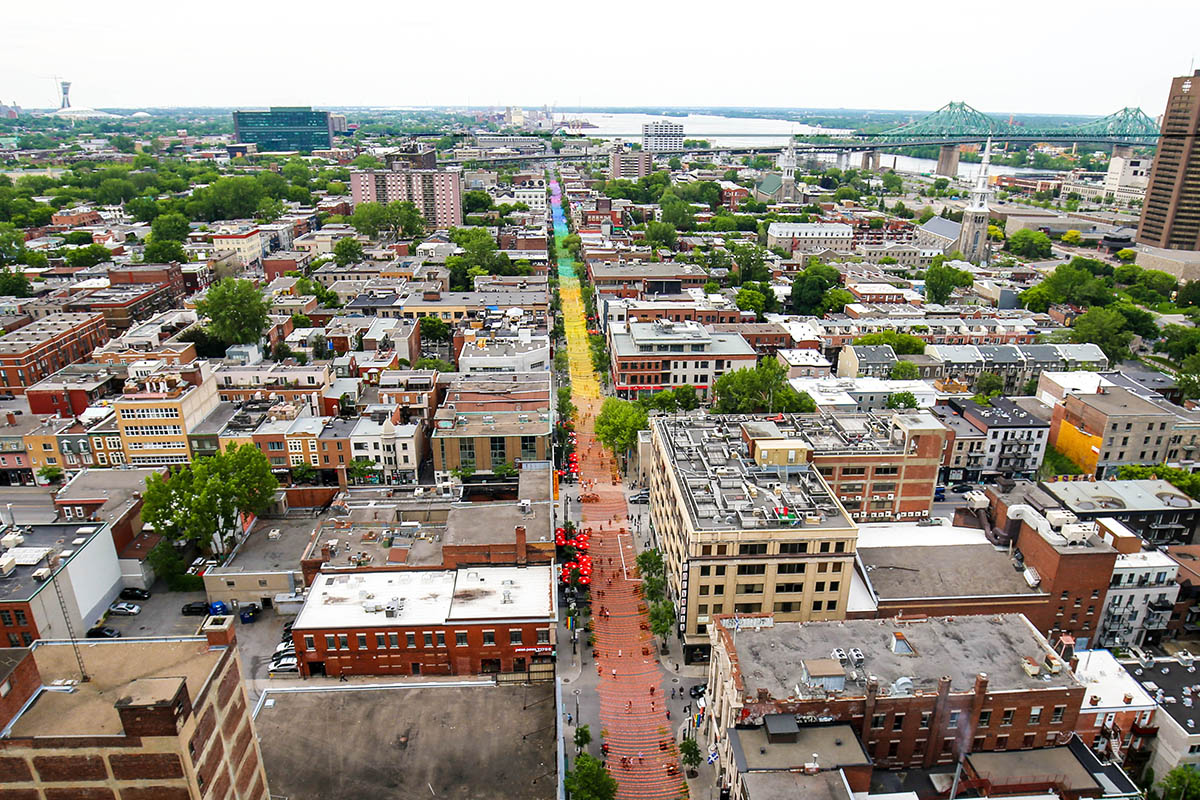
18 Shades Of Gay, Montreal. Image © JF Savaria
Known as a talent for creative problem solving, and an ability to bring light and laughter to everyone—and every situation—he encountered, Cormier was known with audacity, sincerity, discipline, leadership, business acumen.
Having left a colourful and deeply original imprint on North American cities, Cormier’s joyful and subversive designs blended conceptual clarity with a studied instinct for making enduring places.
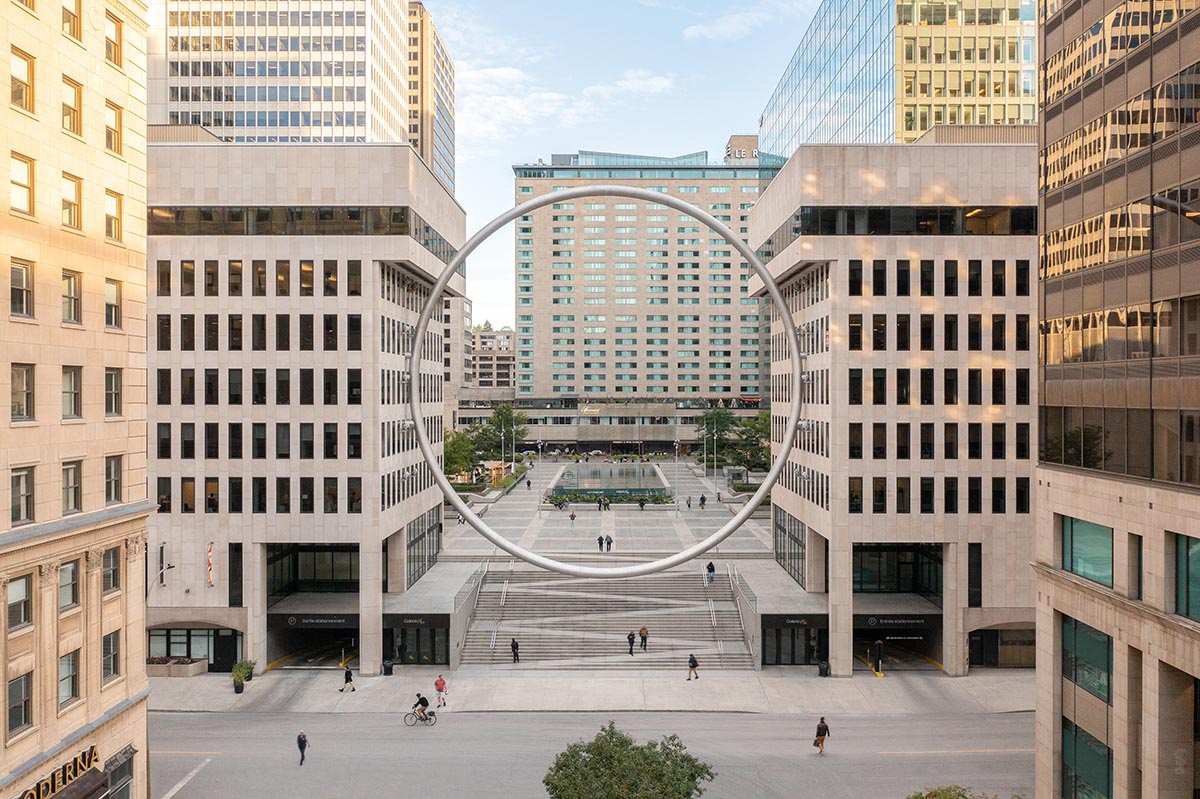
The RIng, Montreal. Image © David Boyer Photographe Inc.
Cormier's works include Toronto’s Berczy Park in 2017 - featuring a prominent water fountain featuring life-sized bronze dogs, and a single cat, The Ring in Montreal in 2022 - a monumental 30-metre-diameter steel hoop, suspended between the modernist towers of Henry Cobb’s 1950s Place Ville Marie, the National Holocaust Memorial in Ottawa designed by Daniel Libeskind in 2017.
Claude was a great visionary. He influenced us in a surprising and powerful way thanks to his creative force and his joie de vivre which he was able to put at the center of our lives.
His bubbling creativity and warm presence have allowed him to develop a highly renowned firm in landscape architecture and urban design focused on a positive, generous state of mind and an unwavering belief in the power of design.
His creative approach, applied to problem solving and combined with an open and iterative design process, knew how to lead us off the beaten track.
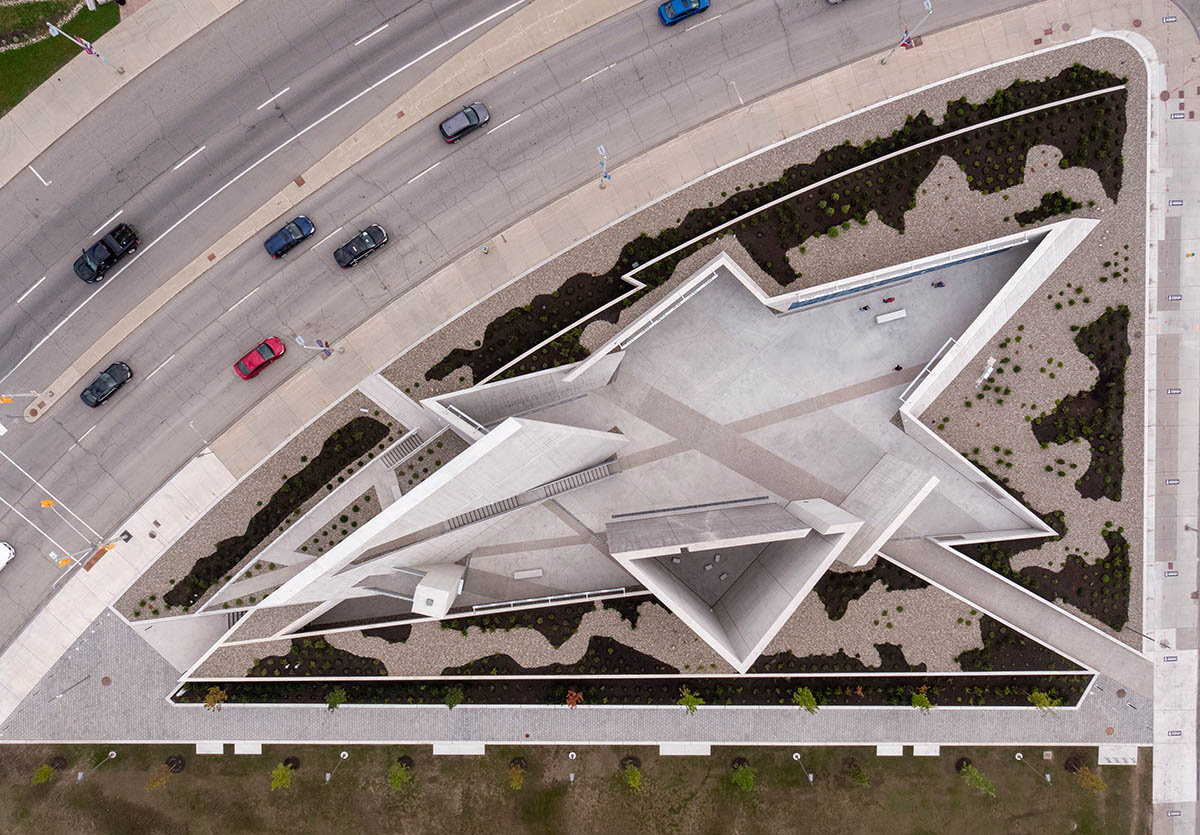
National Holocaust Monument, Ottawa. Image © Double Space
Cormier came from modest, hard-working rural roots, growing up on a farm and sugarbush near the small town of Princeville, Quebec. He was the eldest of two boys and third of four children.
Cormier’s father, Laurent, was a farmer; his mother, Solange, was a teacher. Cormier embarked on an education in agronomy and plant genetics at Laval University in Quebec, with the intent of taking over the family farm.

Claude Cormier. Photography © Will Lew
After his father died in 1976, when Claude was 17, he re-directed his education—first to finish his undergraduate degree in Agronomy at the University of Guelph in 1982, and then to study at the University of Toronto, where he graduated in with a Bachelor of Landscape Architecture in 1986.
Cormier then sought out Phyllis Lambert as a benefactor: Lambert agreed to finance a year at the Harvard University Graduate School of Design in 1994 for Cormier to obtain a Master’s degree in the History and Theory of Design, in exchange for Cormier’s commitment to consult on the landscape stewardship of Lambert’s recently built Canadian Centre for Architecture.
He studied Landscape Architecture at the University of Toronto and Agronomy at the University of Guelph.
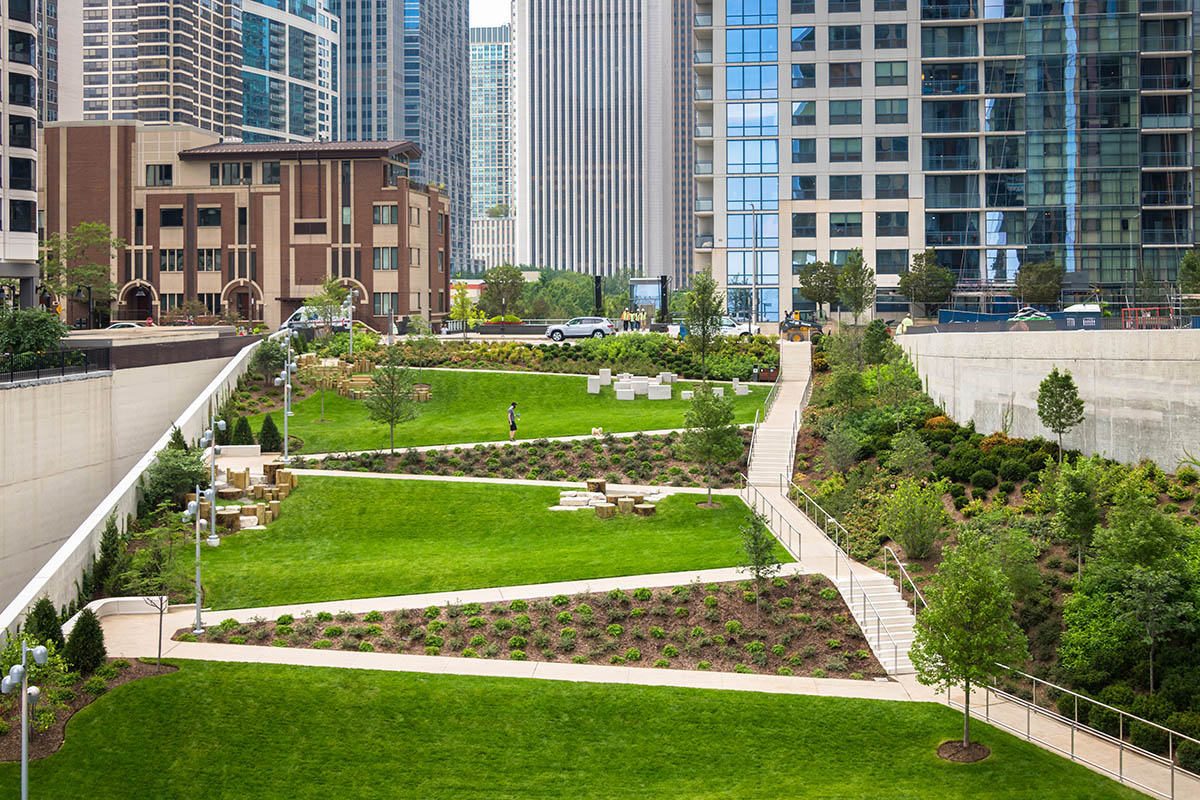
Cascade Park, Chicago. Image © Nick Ulivieri
At Harvard, Cormier was influenced by the theories of landscape architects Martha Schwartz and Peter Walker, whose exploration of the artistic and conceptual potential of landscape design were a departure from the modernist orthodoxy of the previous generation.
Cormier established his practice in Montreal in 1994, and his early installation works established a reputation for projects that incorporated abstraction, storytelling, conceptual art, and the bold use of colour. This stood in sharp contrast to the traditional landscape palette of plants and pavers.
Over the years, Cormier's works received more than 100 awards and honors. In 2023, Cormier was made an Honorary Fellow of the Royal Architectural Institue of Canada, and in 2009, a Knight of the Ordre National du Québec, the province’s highest distinction for individuals who have contributed to the development and leadership of Quebec.
He has received individual and lifetime awards from the Association des architectes paysagistes du Québec and Architectural League of New York.
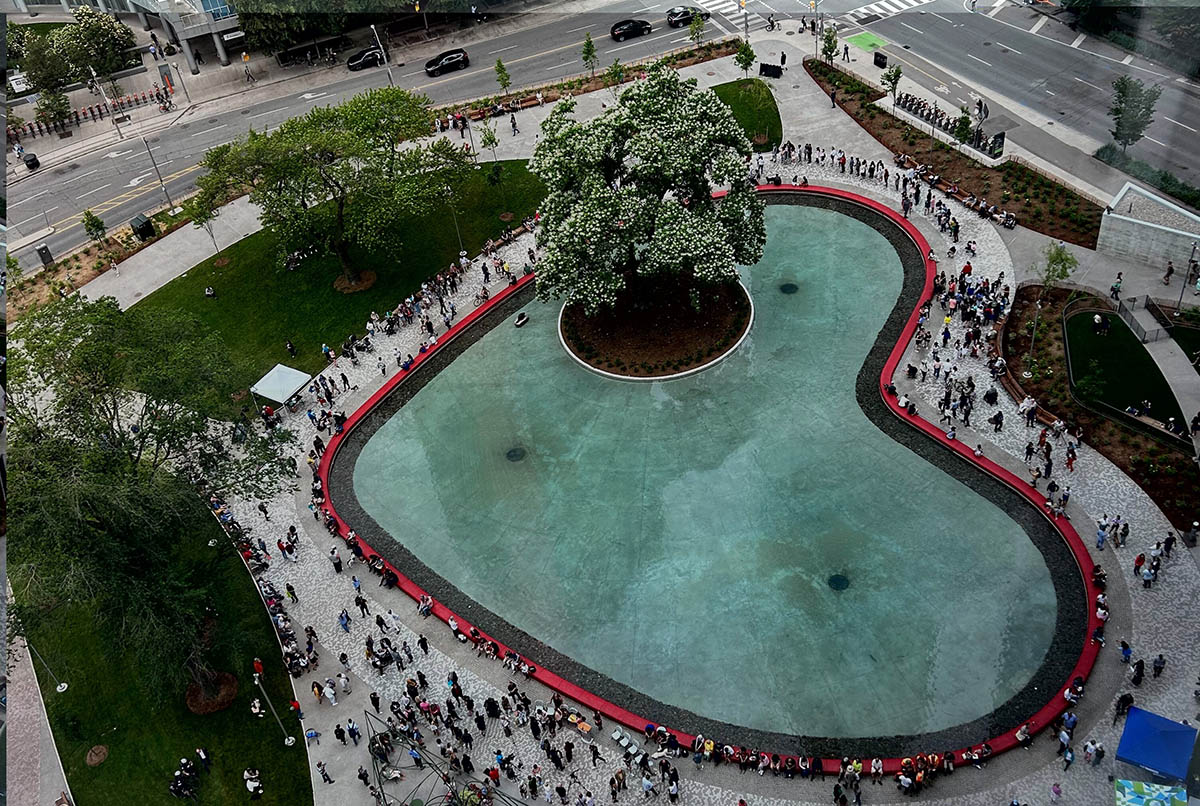
Love Park, Toronto. Image © CCxA
In August 2023, Cormier was videotaped for a forthcoming oral history by The Cultural Landscape Foundation (TCLF), part of the Pioneers Oral History series that features significant landscape architects.
TCLF President and CEO Charles A. Birnbaum noted, "Cormier’s design approach is unique in the landscape field—his work pulverizes the notion that history and design can't be happily wed. He consistently designs projects that are original, fresh, memorable, painstakingly detailed, and revel in being both highbrow and lowbrow."
Cormier’s last major works are love letters to his two chosen cities, Montreal and Toronto. His another significant project was Love Park in Toronto in 2023.
Love Park is a heart-shaped pond enclosed by a 170-metre-long red mosaic “love seat,” transforms a former freeway offramp into a town square for a growing community on the city’s downtown waterfront.
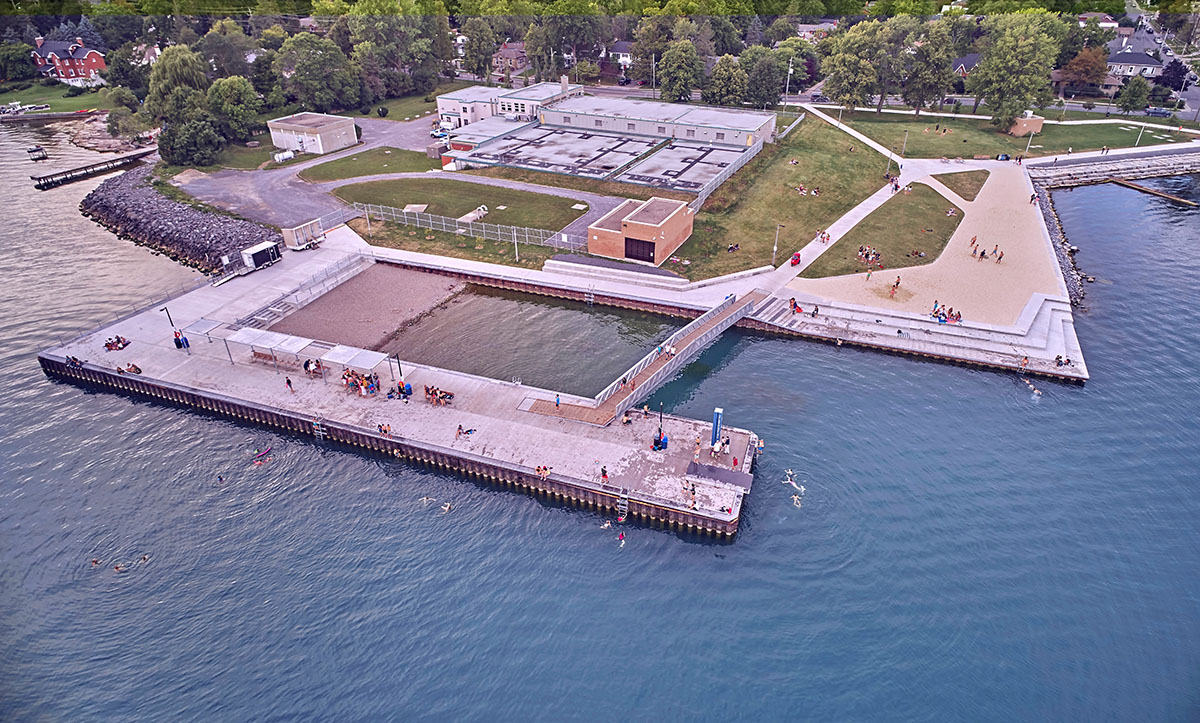
Breakwater Park, Kingston. Image © Industryous Photography
Several projects showcase Cormier’s role as a design ambassador for queer issues. In these projects, Cormier’s characteristic blend of avant-garde techniques and accessible fun create places that emotionally resonate with—and beyond—LGBTQ2S+ clients and communities.
More recently, Cormier announced his $500,000 donation to establish the Claude Cormier Award in Landscape Architecture at the University of Toronto.
In 2022, CCxA was invited by Phaidon Press to be featured in a publication as one of the top 30 landscape architects in the world.
Serious Fun – The Landscapes of Claude Cormier, the first book exclusively dedicated to the work of Claude Cormier and his team, written by Marc Treib and Susan Herrington, was published by ORO Editions in 2021.
The full obituary article was written by Beth Kapusta.
Top image in the article: Claude Cormier. Photography © Will Lew.
> via CCxA
